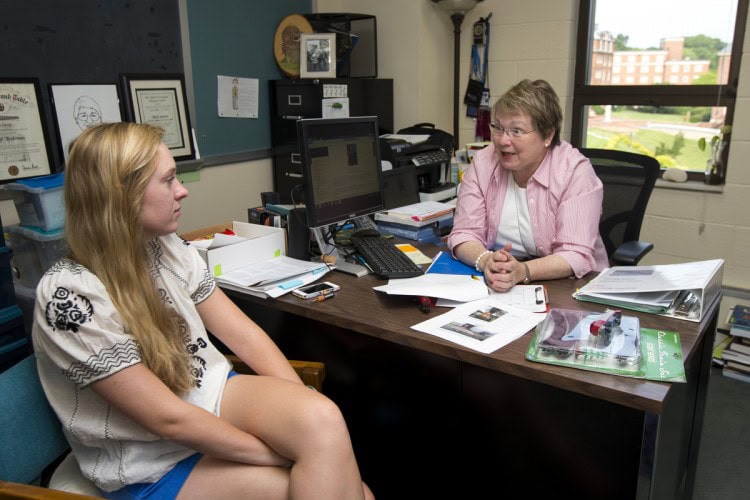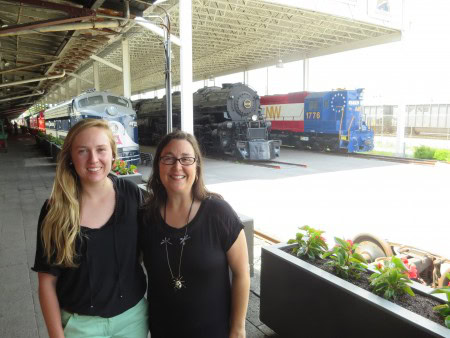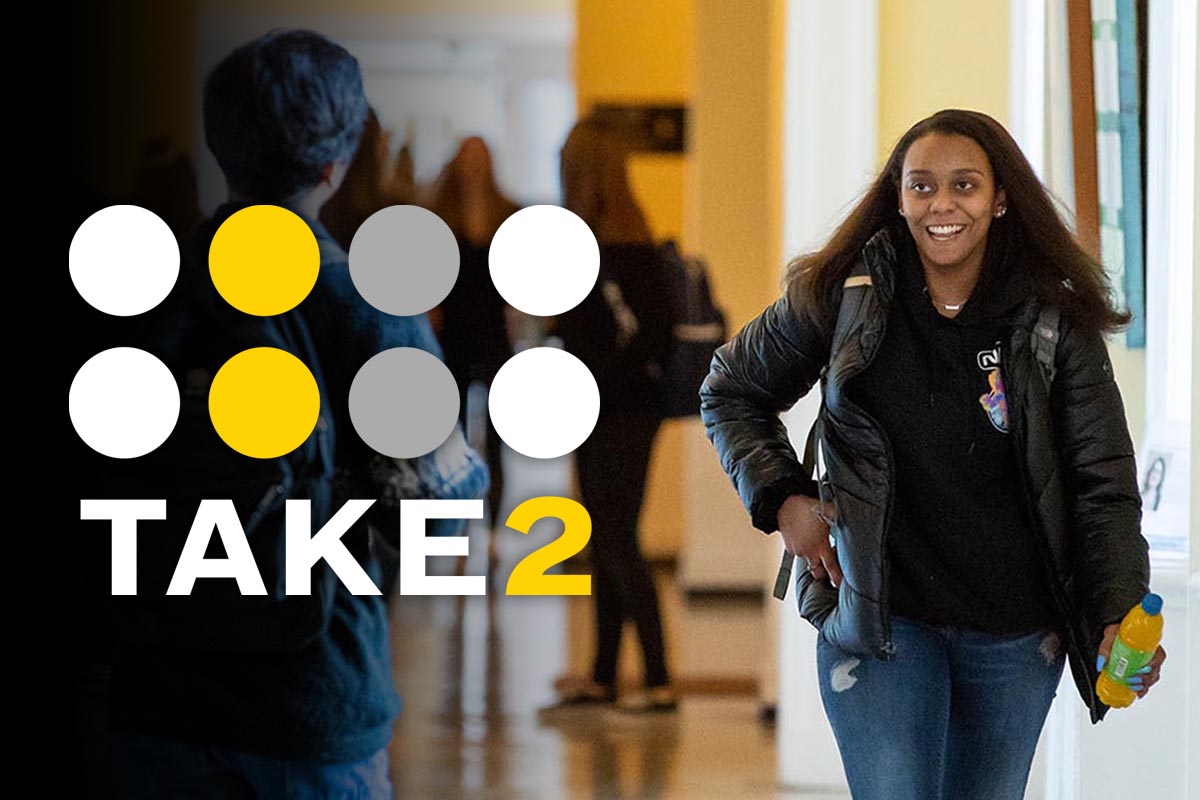Work by Randolph student and professor helps children understand the environmental impact of a local train derailment

Addie Moore ’17 meets with Cheryl Lindeman to discuss the lesson plan she is developing to help children understand the environmental impact of the 2014 Lynchburg train derailment.
Most children enjoy learning about trains, but something Thomas the Tank Engine doesn’t teach them is what happens when a train runs off the tracks.
That’s where Addie Moore ’17 comes in. The curricular studies major from Lexington, Virginia is working with education professor Cheryl Lindeman on a Summer Research project designed to help young children understand the environmental impact of the April 2014 train derailment that resulted in thousands of gallons of oil being spilled into the James River.
Lindeman said the project focuses on problem-based learning and making students more comfortable with analyzing ill-structured problems, or real world dilemmas in which the solution is unclear. She and Moore are using this project to get children to think critically about these types of issues, and Lindeman hopes to eventually create a booklet on problem-based learning for fourth through sixth graders.
“One of my passions has been taking real events–-mainly environmental events–-and making them into meaningful learning activities for students,” said Lindeman. “I asked Addie to go on this journey with me, and what’s really cool is that after the first two weeks she’s really taken over ownership of the project.”
Lindeman and Moore have turned their project into a community effort by asking Lynchburg Police and Fire officials as well as city planners and others what they would like children to learn from the derailment. They have also gained input from members of the James River Association.
“We want kids to understand their voices can be heard when it comes to environmental issues,” Lindeman said.
Though most of their work so far has involved planning lessons, brainstorming, and meeting with local educators and public officials, in early June, Moore used some of the strategies to teach an 80-minute lesson to a third-grade class in a local school division.
“It went really well, and the kids were really involved in it and excited about it,” Moore said. “It was really cool to see that something I was interested in, they thought was cool too.”
Moore started her lesson by asking the class what they already knew about the train derailment in Lynchburg. After a PowerPoint presentation, she used several activities that helped the students understand the situation and what kind of impact it had on the environment.
Finally, she asked them to invent something that could have prevented the derailment or kept the oil from spilling into the river.
“It was interesting to see what they thought could happen,” she said. “Some of the kids created hands that could scoop up the oil and suck it up into a vacuum. Some of them made walls, and one made guardrails. I would’ve never thought of that!”
Moore has enjoyed the opportunity to use the teaching skills she has acquired in an actual classroom setting. For her, Summer Research has been like taking a class by herself.

Addie Moore ’17 met alumna Courtney Plaster ’91 during a visit to the Virginia Museum of Transportation in Roanoke.
“I’m learning one-on-one and getting a lot more out of it compared to being in a regular class,” she said.
The experience has also made her quite the locomotive enthusiast. She and Lindeman took a field trip in May to the Virginia Museum of Transportation in Roanoke, where they marveled at the sizes and styles of various tank cars and met museum employee and alumna Courtney Plaster ’91.
Moore was inspired by another alumna during the May 29 Summer Research seminar, when Meg Maguire ’65 spoke about “place.”
“She talked about finding out where you belong and why it’s important to you,” she said. “I talked with her about how we can make kids understand that Lynchburg is their home and help them figure out what they can do to make it safer.”
An aspiring upper elementary level math teacher, Moore has been accepted into the Randolph Teacher Education Program and plans to pursue her Master of Arts in Teaching (MAT) degree, which involves extensive lesson planning and classroom instruction.
“This experience as an undergraduate in Summer Research is giving her a foot in the door as well as taste of what is to come,” said Lindeman.
Tags: Addie Moore, Cheryl Lindeman, curricular studies, education, Summer research 2015
